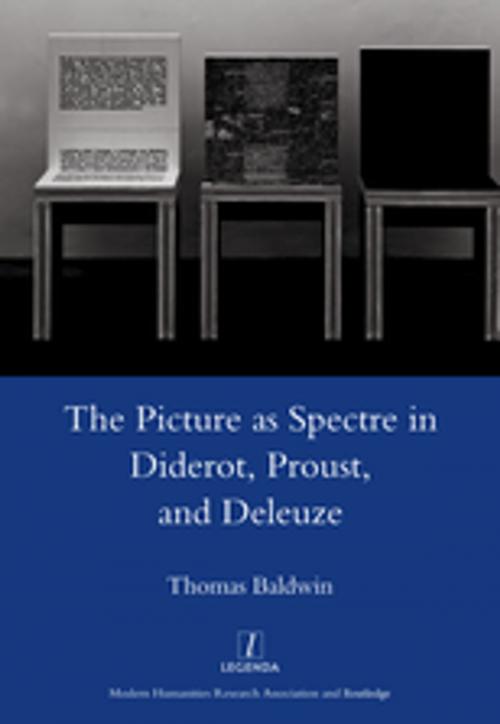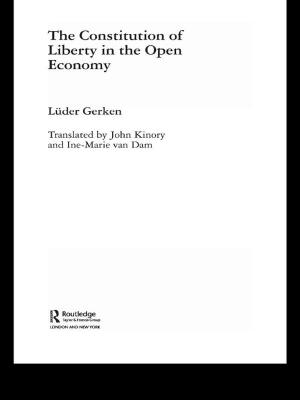Picture as Spectre in Diderot, Proust, and Deleuze
Fiction & Literature, Literary Theory & Criticism, Theory| Author: | Thomas Baldwin | ISBN: | 9781351193214 |
| Publisher: | Taylor and Francis | Publication: | December 2, 2017 |
| Imprint: | Routledge | Language: | English |
| Author: | Thomas Baldwin |
| ISBN: | 9781351193214 |
| Publisher: | Taylor and Francis |
| Publication: | December 2, 2017 |
| Imprint: | Routledge |
| Language: | English |
"The possibility of ekphrasis, the verbal representation of visual imagery, is fundamental to all writing about art, be it art criticism, theory or a passage in a novel. But there is no consensus concerning how such representation works. Some take it for granted that writing about art can result in a precise match between words and visual images. For others, ekphrasis amounts to a kind of virtuoso rivalry, in which the writer aims to outdo the pictorial image that is being described. In close readings of Diderot, Proust and Deleuze, Thomas Baldwin shows how ekphrasis can create a spectral effect. In other words, ekphrastic spectres do not function as fully present stand-ins for given works of art; nor can they be reduced to the status of passive and absent others. Baldwin also explores the ways in which the works of Diderot, Proust and Deleuze inhabit each other as ghostly influences."
"The possibility of ekphrasis, the verbal representation of visual imagery, is fundamental to all writing about art, be it art criticism, theory or a passage in a novel. But there is no consensus concerning how such representation works. Some take it for granted that writing about art can result in a precise match between words and visual images. For others, ekphrasis amounts to a kind of virtuoso rivalry, in which the writer aims to outdo the pictorial image that is being described. In close readings of Diderot, Proust and Deleuze, Thomas Baldwin shows how ekphrasis can create a spectral effect. In other words, ekphrastic spectres do not function as fully present stand-ins for given works of art; nor can they be reduced to the status of passive and absent others. Baldwin also explores the ways in which the works of Diderot, Proust and Deleuze inhabit each other as ghostly influences."















